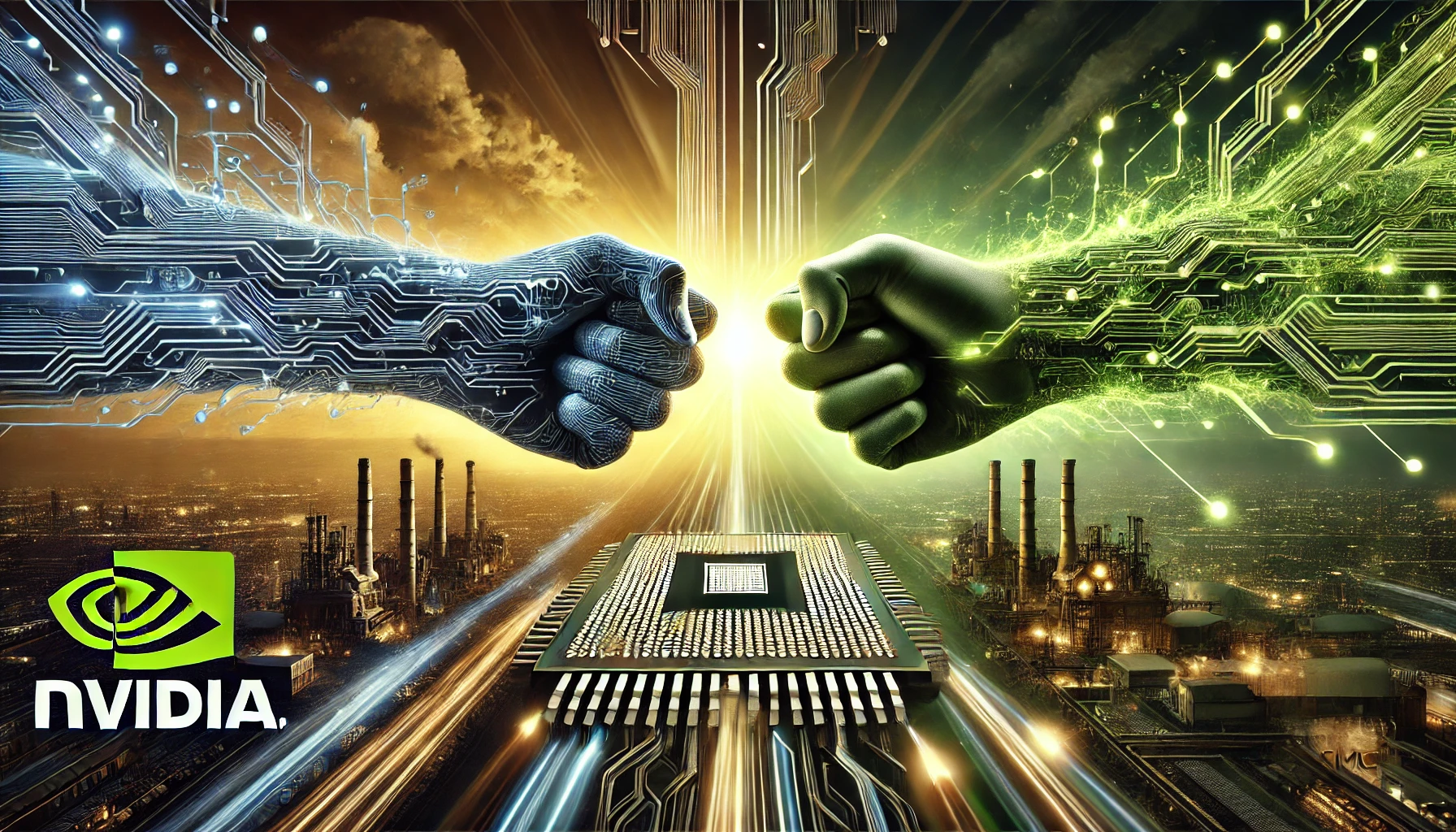Nvidia and TSMC have been the dream team of the AI industry—think Jordan and Pippen, but for chips. Together, they’ve built some of the most sought-after AI hardware in the world. TSMC’s manufacturing prowess and Nvidia’s design brilliance were an unstoppable duo—until now. In a twist that could shift the balance of power in tech, cracks are forming in their once-perfect partnership, and it’s starting to raise eyebrows across the industry.
According to The Information, what was once the most lucrative relationship in the AI hardware space is showing signs of stress. And this couldn’t come at a worse time, with the demand for AI chips soaring as companies like Microsoft and Tesla vie to fuel their AI ambitions.
What Went Wrong? The Blackwell Chip Saga
It all started with a bang—or rather, a fizzle. In March, Jensen Huang, the charismatic CEO of Nvidia, proudly announced the launch of the Blackwell chip, promising revolutionary performance for AI applications. Industry giants like Satya Nadella and Elon Musk showered it with praise. The tech world buzzed with excitement, expecting Blackwell to power the next wave of AI breakthroughs.
But things quickly went south. As Nvidia began testing the chips in real-world conditions, they encountered a show-stopping issue: Blackwell couldn’t handle high-voltage environments common in data centers. Suddenly, the celebratory press releases were replaced by frantic phone calls between Nvidia and TSMC, each side pointing fingers at the other. Nvidia blamed TSMC’s manufacturing process, while TSMC quietly hinted that Nvidia’s design may have overlooked key voltage thresholds.
The Stakes Are High: Why This Partnership Matters
To understand the gravity of this fallout, you need to know just how critical the Nvidia-TSMC alliance has been for the AI industry. Nvidia dominates the AI chip market with its cutting-edge GPUs, which are essential for training AI models. But Nvidia can’t manufacture those chips alone—that’s where TSMC comes in. As the world’s largest and most advanced semiconductor foundry, TSMC has the facilities to produce Nvidia’s designs at scale.
This partnership is the backbone of AI innovation. Without TSMC, Nvidia’s visionary designs are just blueprints on paper. And without Nvidia, TSMC’s factories lose access to some of the most valuable chip orders in the world.
A Tug-of-War Between Innovation and Execution
The tension between design and manufacturing isn’t new—just ask Intel. But Nvidia and TSMC’s relationship has always seemed immune to these pitfalls, until the Blackwell fiasco. It’s a classic case of ambition running ahead of execution: Nvidia designed a chip so advanced that even TSMC struggled to manufacture it flawlessly.
This isn’t just a hiccup; it’s a crucial moment. In an era where AI demand is exploding, the pressure on chipmakers to deliver fast, reliable products is immense. A single delay or defect can set back entire companies—and even entire industries—by months.
How Will This Affect the AI Market?
The cracks in the Nvidia-TSMC alliance could ripple across the tech world. Here’s how this fallout might shape the AI industry moving forward:
1. Competitors Smell Blood
Nvidia’s struggles could open the door for rivals like AMD and Intel to swoop in. Both companies have been ramping up their AI chip efforts, eager to steal market share from Nvidia.
2. TSMC’s Reputation at Risk
TSMC prides itself on being the world’s most reliable foundry, but the Blackwell issue casts a shadow over that reputation. If the perception spreads that TSMC’s manufacturing is slipping, customers might start exploring other options—like Samsung Foundry.
3. Supply Chain Delays
With global chip shortages still fresh in memory, any hiccup in Nvidia’s supply chain could cause delays for data centers, cloud providers, and AI researchers relying on their products.
Lessons in the AI Gold Rush: Moving Fast Isn’t Always Smart
This saga isn’t just a story about chips—it’s a cautionary tale about the perils of moving too fast. In the race to dominate the AI market, even the best partnerships can falter under pressure. It’s a stark reminder that innovation requires more than bold ideas—it demands flawless execution.
And it’s not just Nvidia and TSMC feeling the heat. Microsoft, Tesla, Google, and others are all betting big on AI hardware, knowing that the success of their AI models depends on chips that can handle the load.
Can Nvidia and TSMC Patch Things Up?
The good news? Alliances in tech are resilient. Even the fiercest disagreements can be resolved when the stakes are high enough—and for Nvidia and TSMC, the stakes couldn’t be higher. Both companies know that rebuilding trust is crucial to their future success.
But patching things up will take more than a few phone calls. It will require transparency, collaboration, and perhaps a bit of compromise—traits not always easy to come by in an industry driven by competition and ego.
A New Era of AI Innovation? Or the End of a Golden Partnership?
As Nvidia and TSMC navigate this storm, the rest of the tech world is watching closely. Will they overcome their differences and emerge stronger? Or will this mark the beginning of the end for one of the most profitable partnerships in the AI world?
Only time will tell—but one thing’s for sure: The future of AI depends on it.
What Do You Think? Join the Conversation
Do you think Nvidia and TSMC will weather this storm, or are we witnessing the beginning of a major shift in the AI hardware market? Share your thoughts in the comments below—we want to hear from you!
And don’t forget—become a permanent resident and eventually a citizen of the "Shining City on the Web". Join the iNthacity community and stay ahead in the ever-evolving tech landscape.
Disclaimer: This article may contain affiliate links. If you click on these links and make a purchase, we may receive a commission at no additional cost to you. Our recommendations and reviews are always independent and objective, aiming to provide you with the best information and resources.
Get Exclusive Stories, Photos, Art & Offers - Subscribe Today!
























Post Comment
You must be logged in to post a comment.